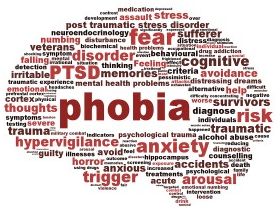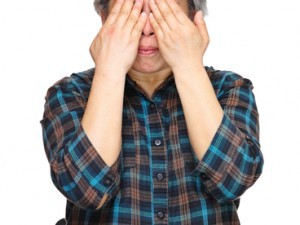Hypnosis is one of the most effective ways to get rid of a phobia. Hypnosis is a natural method which can be used to cure a phobia quickly and painlessly. The first step to understanding how to get rid of a phobia is to understand that phobias are learnt. Normally learning is a process that can take a few attempts. An example would be learning to read or ride a bike; it takes a number of times before it becomes automatic. When fear is present your brain learns a lot faster and phobias can be learnt from bad experiences or from other people such as friends of family members.
Tips on how to get rid of a phobia
There are several tips on how to get rid of phobia, however a lot of them might not be effective as a phobia is an irrational fear based response. A phobia can cause physical and psychological stress and can affect your ability to act normally. People with phobias feel uncomfortable and avoid whatever they fear at all costs. Sometimes it can also inhibit activity.
There are different types of phobias and not all fears are phobias.
• Phobias can produce the following reactions:
• Uncontrollable restlessness when you experience fear.
• Doing everything possible to avoid what you fear.
• Not being capable of normal activity because of your fear.
Physical reactions such as sweating, increased heart rate, difficulty breathing, or feeling of panic or intense anxiety.
Phobia is originated from the Greek word for ‘fear’. It is a strong continual fear of situations, activities, objects, or persons. The major symptom of this disorder is the excessive, unreasonable wish to avoid the feared subject. When the fear is out of one’s control or if the fear is interfering with everyday life then a diagnosis under one of the anxiety disorders can be considered. Therefore, basically, phobias are a kind of anxiety disorder much along the lines of fear and panic. According to the Royal College of Psychiatrists, phobias affect about one in 10 people in the UK.
Phobias affect people of all ages, from every walk of life, and in all parts of the country. Phobia is used in a non-medical sense for aversions of all kinds. These terms are generally constructed with suffix-phobia. A number of these terms describe prejudices or negative attitudes toward the named subject. Some examples include xenophobia (fear or dislike of strangers)
How to get rid of a phobia
Many people still wear their phobic badges around their friends and family. They may be agoraphobic (afraid of open spaces or crowds), claustrophobic (afraid of closed in spaces), hydrophobic (afraid of water), or genophobic (afraid of sex). The list goes on endlessly.
It is not exaggerated to state that the majority of people have an irrational fear of certain things or situations, without the necessity of fulfilling the diagnostic criteria for a phobia (irrational fear may develop into a phobia when it starts interfering with the particular person’s usual activities). The most common simple phobias are those of spiders (arachnophobia), reptiles, mice and other animals. These phobias usually start in childhood and often disappear without any treatment.
When the phobic stimuli are encountered, people are defeated with a strong and immediate anxiety reaction (palpitations, sweating, breathing difficulty, paleness). Gradually, mere imagery or anticipation of the phobic stimulus helps to provoke anxiety symptoms and can really lead to avoidance behaviour and/or major modification of one’s lifestyle.
It is at this point when the phobia really becomes problematic, treatment should immediately be explored on how to get rid of a phobia. Hypnotherapy has been proven to reduce anxiety levels. Hypnotherapy uses your natural state of mind to help people make positive changes. During hypnosis my clients are deeply relaxed and their attention is focused on inner thoughts and feelings, so much so that they feel detached from the world around them. While in this deeply relaxed state suggestions can be made to make changes in thoughts and behaviour. It is important to realise that hypnosis itself is not a therapy. It is what happens during the hypnosis, the images that are created, and the suggestions that are made, that are the therapy. Hypnotherapy is a wonderful way of overcoming any number of stress-related conditions such as phobias, panic attacks, and anxiety.
Even after only one session most people report feeling more relaxed, but two or three sessions are usually needed to make real changes in thinking and behaviour. Therefore, if your life is blighted by a phobia hypnotherapy may well be the answer.
For more information on treating phobias please contact
Kim Thomas on 07944 268 368 www.anewyoutherapy.co.uk






